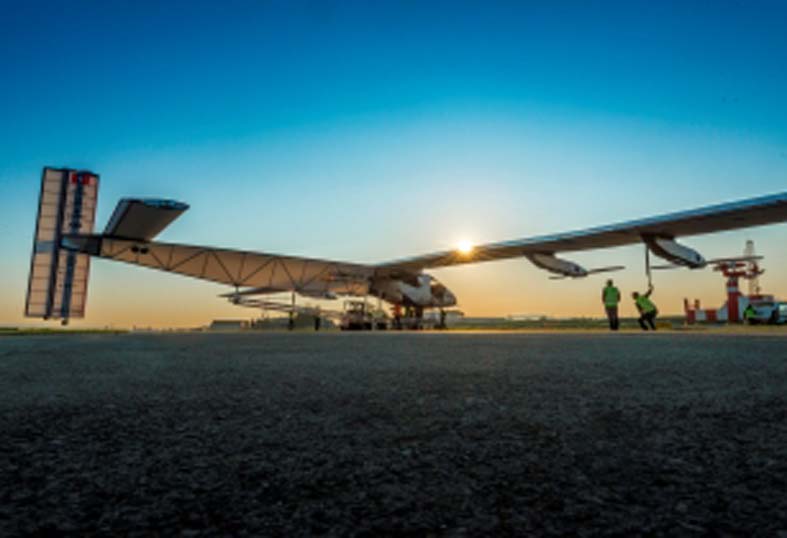Solar Impulse 2, the solar powered aircraft that is making its journey around the world to promote clean energy, was supported by digital technology from Siemens
Digital technology from Siemens was used to virtually simulate many of the physical demands the aircraft could encounter on its journey, employing advanced software to analyze where the structure needed to be stronger and where weight savings could safely be made.
Siemens product lifecycle management (PLM) software enabled the team at Solar Impulse, and their partner AeroFEM, to virtually optimise the aircraft’s design even before physical prototypes were built, or test flights taken.
For example, analysts used the Siemens Femap software for computer aided engineering (CAE) to digitally optimise the plane’s wing structure in order to meet strength requirements with minimal weight gain. The team was able to go from using a material weighing 100 g per sq m to one weighing just 25 g per sq m.
The software also enabled the team to make the cockpit three times larger, but weighing less than twice as much as the original (60 kg for the new cockpit compared to 42 kg in the original).
Digitalisation technology from Siemens PLM Software has been used to optimise a long line of innovative and record-breaking designs, including a championship-winning Formula One car from Red Bull Racing, the NASA Mars Rover ‘Curiosity’ which is beaming data from 54mn km and the Land Rover BAR British racing catamaran which will compete in the 2016 America’s Cup.






